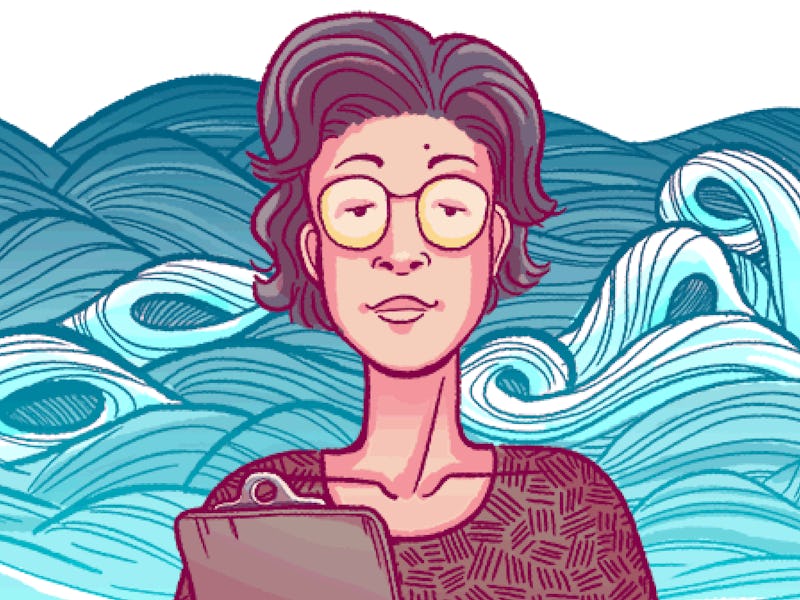Katsuko Saruhashi, a Fishing Trawler, and Nuclear Tests: How She Made History
Turns out nuclear bombs are bad for the ocean.

Katsuko Saruhashi, the groundbreaking geochemist whose 98th birthday was celebrated in a Google Doodle on Thursday, likely helped save the world from radioactive oceans. As part of the Japanese Geochemical Laboratory in 1954, Saruhashi proved that waste from oceanic nuclear tests isn’t confined to the immediate test region. In fact, radioactivity spreads around the world.
The Japanese government first got wind that something might be going awry with nuclear testing after the United States military’s test at Bikini Atoll in the Marshall Islands, some 2,000 miles away from Japan. The U.S. dropped an atomic bomb 1,000 times more powerful than the Hiroshima bomb into the atoll, rendering the immediate area nearly uninhabitable to this day. Hiroshima’s atmosphere, on the other hand, has returned to normal background radiation levels.
During the test, a Japanese fishing boat was trawling the water 60 miles away from Bikini Atoll. At a commemoration in 2014, one of the crew members, Matashichi Oishi, recalled the harrowing experience.
“I remember the brilliant flash in the west, the frightening sound that followed, and the extraordinary sky which turned red as far as I could see,” Oishi said. Unfortunately, the explosion induced more than just fear. Seven months after the test, one of the fishermen died of organ malfunction, and 15 additional crew members later died of cancer and other illnesses suspected to have been caused by nuclear exposure.
The Bikini Atoll test blast was 1,000 times more powerful than the blast at Hiroshima.
After the fisherman began showing deleterious symptoms, the Japanese government asked Saruhashi’s team to begin testing the water for contaminants. After years of research, Saruhashi found that it took only a year and a half for radioactive water to reach Japan. Within 15 years, fallout had spread throughout the entire Pacific Ocean.
Saruhashi’s study on the spread of radioactive waste properly alarmed the international community, in part leading to the ratification of the Limited Nuclear Test Ban Treaty, which explicitly prohibited nations from testing nuclear weapons underwater.
Saruhashi’s legacy isn’t limited to helping enact the test ban treaty. She was the first woman to receive a doctorate in chemistry from the University of Tokyo in 1957, and after winning many prestigious awards, she established the Saruhashi Prize for young female scientists who are inspiring the next generation of women.
“There are many women who have the ability to become great scientists,” Saruhashi said. “I would like to see the day when women can contribute to science & technology on an equal footing with men.”